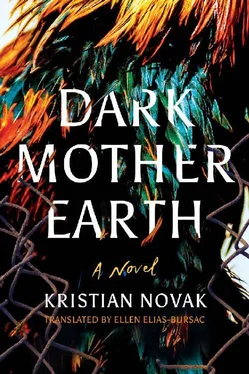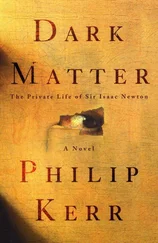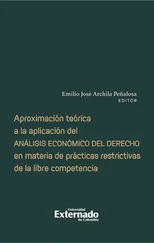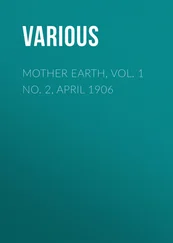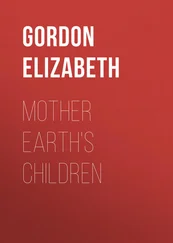For a moment, I wanted to believe her. If I believed, everybody would be nice to me, and they’d forget what I’d done. If only I could believe. The next morning at school, it was clear I was on my own. Dejan walked right by me, saying nothing, and sat on the last bench at the back of the room with the boy we’d called Kiss-Ass. That was when the loneliness started.
Those days I barely spoke to anyone at school. Silvija Jambrožić and Suzana Perčić spoke to me a few times; they thought if they wanted to be teachers, they should practice talking to the kids everybody else hated. The others eyed me strangely, I thought, though I didn’t believe Dejan told anyone about that night. Granny, Mom, my sister, my uncle, and his wife treated me like they always had, and I made an effort to be especially good and to do everything they told me without complaint. I made two drawings around then, one of the river showing Dejan and me, and my dad’s face watching us from the water, and in the other I’m sitting on a bench while other children are playing. I went with Mom to the cemetery and left my drawings there under the graveside lantern, or in the little trough behind the headstone. The next day the drawings were always gone, and that was enough to convince me he was getting them. Traces of Dad’s presence disappeared bit by bit from our house. Reminders of him appeared now and then in unexpected places. Mom put his deodorant by the toilet for us to spray after pooping. My sister found an old note in a drawer saying he’d gone off to our neighbor Tonči’s to pick up tires. I was finding it harder and harder to wipe the painful grimace from my face, and several nights I dreamed I was vanishing. In my dream people came to see the vanishing boy. They tried to grab parts of me, but I always slipped through their fingers.
A few days after the night by the river with Dejan, when Mom and I were at the store, I thought I saw the two women at the end of the aisle talking in hushed tones with the saleslady, who was pointing at us. When we got closer all three said hello loudly, oozing friendliness, and talked brightly with Mom about how the harvest wasn’t great this year, and how the community ought to get a better fertilizer for the people who were farming. This was the topic on everybody’s lips in the village. The only ones against it were those who worked in Slovenia, because they wanted the money to be used for paving the dirt roads going into the hills. In the winter they found it hard to get there through the snow. People were even more insistent about laying a pipeline for running water. In the village we still drank the water from our wells. Emotions were running high that autumn; people flashed duplicitous smiles, and dismissed anyone who disagreed as clueless. The women listened and committed to memory who said what, and then rehashed it all whenever they ran into one another, like those ladies with my mom.
That same afternoon a man I’d never seen before came to our house. He had a mustache and wore jeans and cowboy boots. My sister and I were sitting on the stoop, and Mom talked with him for ten minutes, and then he gave her some money, and in return she gave him the key to our car. He got in, but she waved at him to wait, then ran into the workshop and came back with the monkey wrenches and drill. He turned the drill over in his hands. I couldn’t hear everything they said, but he gave her back the drill and drove off in our car toward the hills. Mom put the tools back in the workshop, and as she passed between me and my sister, I asked whether the car was getting repairs, but she didn’t answer.
My sister spent some time every day showing me how to read and how to write my name and Mom and Dad and Sis . I learned to read slowly; the opaque forms of words intrigued me because I could tell there were meanings inside them hiding from me. I allowed them the right to represent something other than themselves, and came to see written things with an additional, third face. I found out there were these invisible pockets I’d reach into each time I read something to myself or out loud. I began reading aloud everything I could: the labels on spices, advertisements, death notices, the ingredients on shampoo and detergents, license plates, and subtitles (at least the ones that stayed long enough on the TV screen). I’d interrupt the painful silence dominating the household by spelling: “ s - o - d - a , soda,” “ c - o - f - f - e - e , coffee,” “ l - y - e , lye.” Sometimes I’d even take a book off the shelf. What it was about didn’t matter, I wanted to see what sort of words were written in it and if could I reach for them. I loved this new world, and now I looked differently at things that featured words—labels, books, stores, or tanker trucks—as if in their invisible pockets there were explanations and instructions, as if meaning and truth were waiting for me. I knew I would be able to hide in those pockets that were hanging from everything, and somehow I guessed I’d be able to fill them myself with promises. I could picture paradise as a vast expanse of reading corners in a perfectly white space with happy readers going into them to seek new memories and friendships, as people who are kind of lonely do, something I knew even though I was still small.
As for me, I longed for friendship, and maybe that’s how I opened a pocket where it could be inscribed. I made two truly odd acquaintances, the kind that shape one’s life. The first time I saw them was on one of those winter evenings that sometimes appear in late autumn, when things can no longer be clearly seen. I was watching Granny shoo the chickens into their coop for the night, like I always did. She was hunched and moving slowly, but she shooed the chickens into their coop with big, noisy energy. She called, “Bacawk-cawk! Chickichee-chee! In you go! Bacawk! Chickichee! Consarn it, where’re ya off to!” and clapped her gnarled, wrinkled hands. That evening I finally saw what the chickens were running from so skittishly. As soon as Granny called “Bacawk!” out leaped a shadowy figure from the gloom between the pigsty and the barn: it wasn’t much bigger than a dog, and it waddled on two feet, pushing itself along with one fist in the dirt. With the other arm it kept tugging at its oversized coat, the sleeve flopping over its hand and dragging across the ground. It swept the dirt along as it moved. Around its feet, instead of boots, it had tied two of Granny’s white dishtowels embroidered with sayings: Cooking the dinner was a breeze—hubby says it’s the bee’s knees and Cook, bite your tongue so the dinner doesn’t burn . On its head it wore an old-fashioned cap like the one Dejan’s granddad wore, and its face, as far as I could see, resembled a good-natured hog. Its tiny eyes kept winking, first one, then the other, and its runny nostrils opened and closed. The exterior of its snout reminded me strangely of how I’d always pictured the interiors of the noses of normal living beings.
As soon as it came prancing out of the dark, it loped after the chickens and started kicking at them with its feet and flailing its arms, and they scuttled off toward the coop. Another shadowy figure took off after the ones darting in the opposite direction; this one had emerged from the gloom between the corn crib and an old horse cart when Granny called “Chickichee!” It was a little shorter and pudgier than the one she’d called Bacawk, and it was wearing a chestnut-colored cape with a hood over its head that rose to a tall point. Its head looked a little top-heavy with two huge greenish webbed eyes, like the eyes on a horsefly, and it was barefoot. One foot was nearly twice the size of the other, and they were angled in opposite directions. But that didn’t seem to be much of a problem, because it padded cheerfully along after each chicken that was eluding the coop. The two of them speedily stowed all the chickens away, and Granny shut the coop gate. I laughed and clapped loudly, and the two characters hugged each other and bowed low like country fiddlers. The louder I clapped, the lower they bowed, until their foreheads met the mud. They exchanged looks, and Chickichee farted. I had to grab hold of my wiener to stop from peeing my pants from laughter. Granny paid no attention to them or to me, she just turned to go back to the house, muttering, “Consarn them chickens.” As soon as they heard that, Bacawk and Chickichee vanished, each into his own gloom. Granny added: “Come on in, let’s fix us some cocoa.”
Читать дальше
